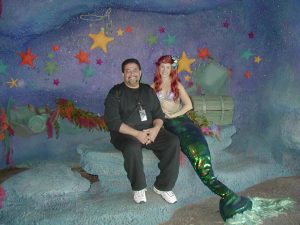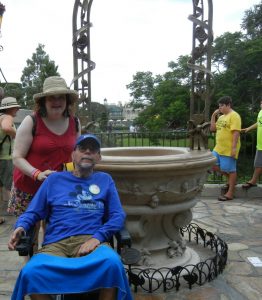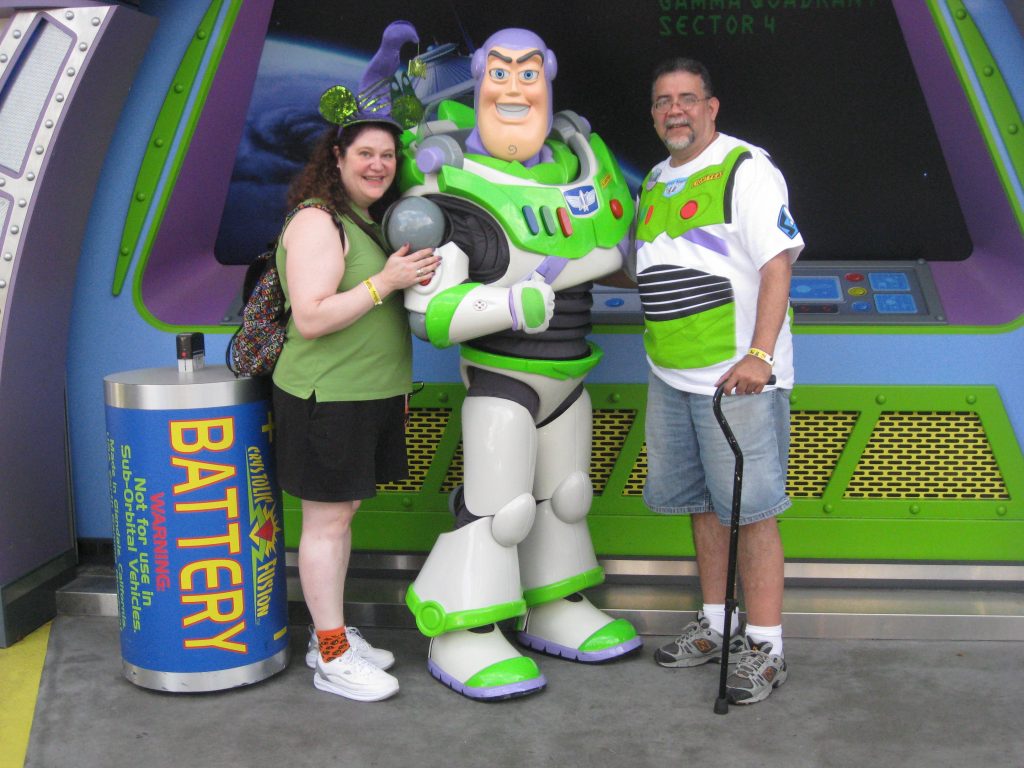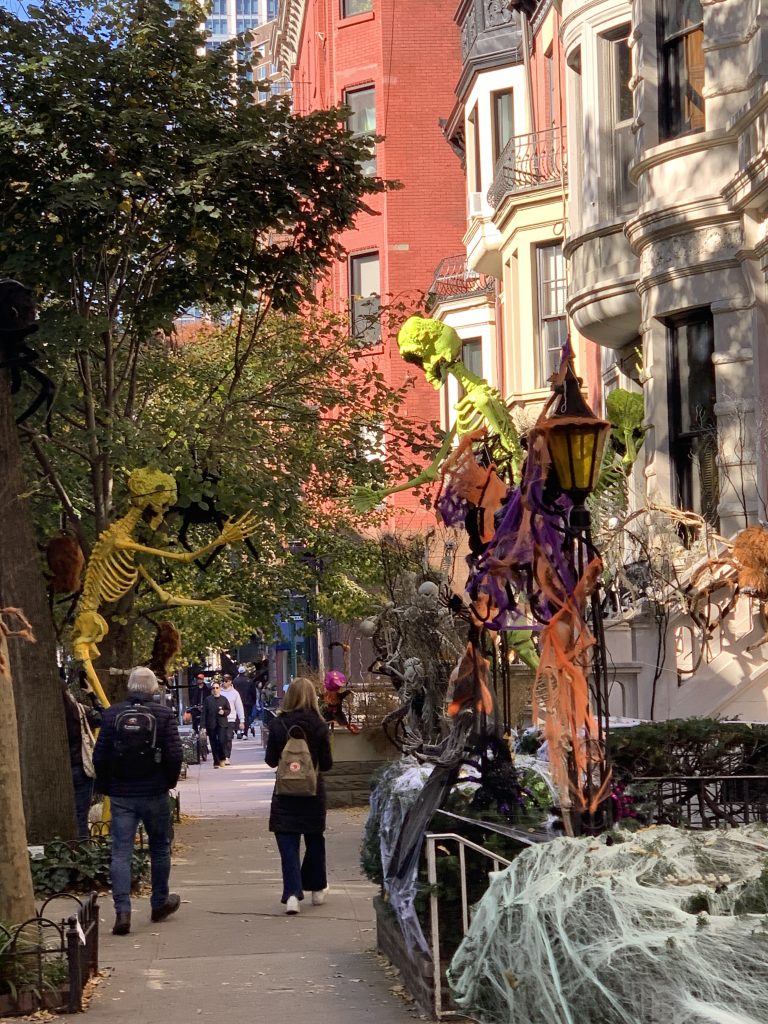A State of Gratitude- Not Always Easy

It seems that Thanksgiving is always a melancholy holiday for me. I wake up in tears and feel alone. I’m not alone. I know that I am loved. I feel fortunate in so many ways that I do not take for granted. Still, during this family holiday, I cannot escape the sadness that the family I was always close to is gone. I have redefined my concept of family, but holidays like Thanksgiving remain a challenge. I had a lovely day with friends, but still felt a void in my heart.
I have been thinking about the film Up, and when Ellie wrote to Carl in her journal, “Thanks for the adventure – now go have a new one!” I have opened new doors and continue to do so, I have had new adventures, and I have created a new life for myself. However, there are times that I remain shaken by even the small steps that I take.
One of my rituals is to start every day on my way to work listening to my Ben playlist of songs that were special to us for various reasons. Once the playlist ends, I choose any album that strikes my fancy. Last week, I really wanted to listen to a Christmas album. I apologized to Ben out loud and put the album on instead of his playlist. I tried once before to deviate from the playlist, but it did not feel right. This time, I got teary and unnerved but decided to test myself. I can’t say that I fully enjoyed the album, but I showed myself that I can make these shifts and it does not mean I am forgetting Ben. He is always here.
If you read this blog, you know I believe in signs. I believe that Ben sent me a sign that morning. When I exited the subway, there was a musician playing the violin. Ben loved music, appreciated street musicians, and always gave them money. I don’t think I have ever seen a musician in this particular spot, but I quickly deposited a few dollars in his container, and he smiled at me and wished me happy holidays. I felt a bit overwhelmed but comforted by what I perceived as a sign that Ben was with me and was fine with my listening to new music. Just as Ray from The Princess and the Frog found peace in his knowledge that the star he saw was his beloved Evangeline, I find peace in these signs that Ben is with me. I want Ben to show me that it is okay when I do something new or decide to part with something that has a- perhaps even vague- connection to him. The good thing is that he does send me those signs. You might be saying that I am simply interpreting events to justify my reasoning or actions. You may be right. Or not.
That event stayed with me all day. I ponder whether I handle things well. I wonder why other people proceed more quickly. I have gotten better at ignoring the directives of usually well intended friends and acquaintances. Since I have a general contentedness, I just embrace that I am who I am and the ebbs and flows of grief. That evening, I went to see one of my very favorite performers, Liz Callaway, in a concert with her sister, Ann Hampton Callaway, who has also become a favorite. I have written about Liz in the past. I have followed her career since the 1980s, when I saw her in a Broadway musical called Baby. I became aware of Ann through Liz and love her voice. They often perform at the most wonderful venue in NYC called 54Below. It is my zen location and their voices, their relationship, the arrangements and musicians are my peaceful place. Liz always manages to sing a song that I need to hear, and last night did not disappoint. She sang a song called I’ll Be Here, from musical I never saw called Ordinary Days. It tells a story of love and loss and signs from the departed man that it is okay for her to part with some of his things, or even to fall in love again, because he would always be with her. I knew the song from one of Liz’s albums, so as soon as it began, I felt the tears start to flow. The thing is, it was what I needed to hear. It was the validation that other people also experience the same struggles that I do, but that our loved ones are always with us and that continuing to step forward is okay.
There are things that I am not ready to change. His old desktop computer, which has his music library, is becoming obsolete and a couple of days ago there was a notification that his system will not support the current updates. I only use the computer to play music, so I don’t know that it really needs replacing. However, that computer occupies space and music that, to me, represent Ben’s presence, and I do not know if I am ready to let go of that. It is irking me to think about it, so I am giving myself time to adjust and decide.
Maybe I am testing myself by slowly or subtly making changes in routines and my apartment because I am making big life changes. In two months, I will be retiring. I am very excited about it, but also nervous. It will, indeed, be a new adventure, and although being alone gives me freedom and independence, that also comes with loneliness and insecurity. This will be a phase of my life that is not connected to Ben, though he lives within me no matter what I’m doing. It is a phase of my life that is so important, and my dad is not here to give me advice. But, the memories, the lessons, the old discussions are still part of me. As the song Liz sang said, they are still here. I am grateful for that deeply felt knowledge.
Despite the hovering sadness and “unknowingness,” this is the time of giving thanks. Walt Disney said, “The more you are in a state of gratitude, the more you will attract things to be grateful for.” I agree with this, and I counter the moments when I feel like I’m floundering by reminding myself of the many things for which I’m grateful. I have come to realize that Thanksgiving is a time when I deeply feel the losses. At the same time, I am grateful for the memories and love that fill my heart. I am grateful that like Peter Pan, I “have faith and trust” and will see the signs that my loved ones are watching over me as I venture into my new adventures.
Holidays can be difficult times. Be gentle with yourselves.






